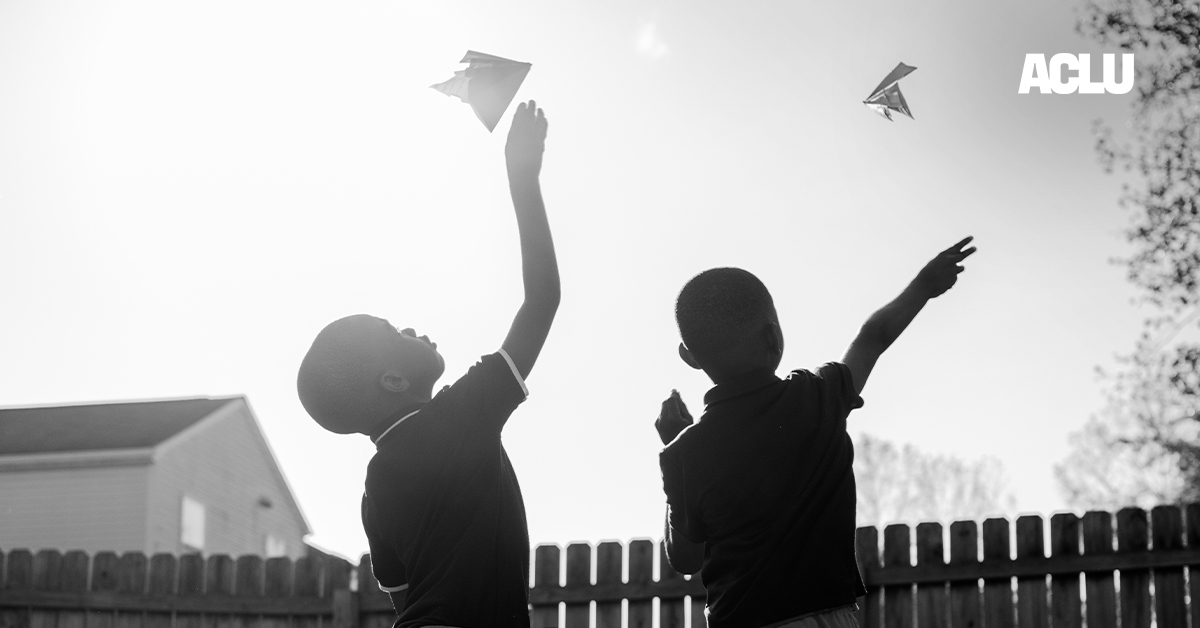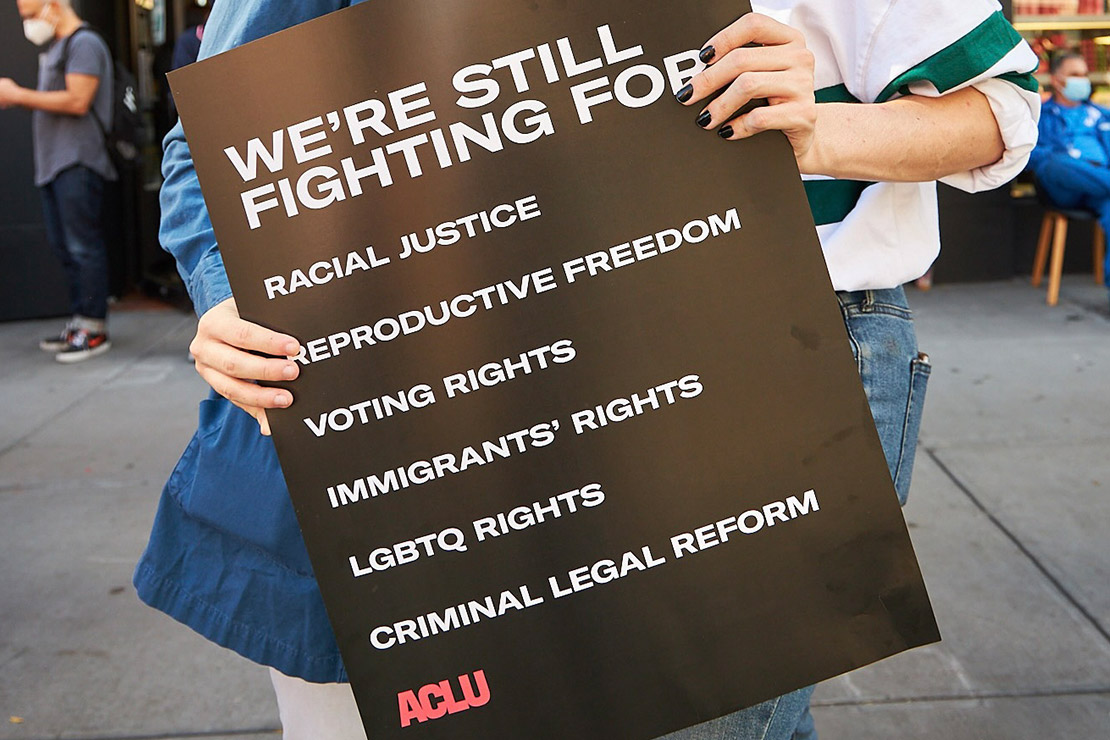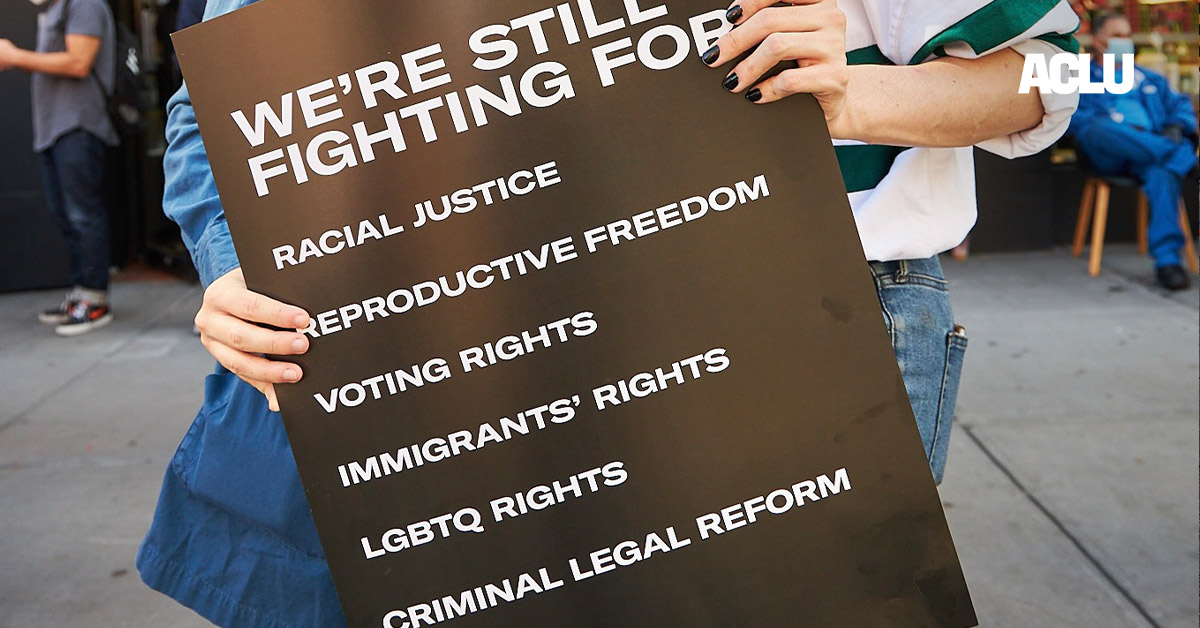What does daily life look like while waiting to win asylum? That question was central to our latest series, Letters to America. The series, available now, features several individuals sharing their heartwarming – and often haunting – experiences coming from all over the world to seek safety, freedom and opportunity in the U.S.
For many individuals, the journey to being granted asylum is long. Even after arriving in the States, they may be held in detention centers for months or even years before being released into the community and reuniting with friends and loved ones. Many people begin to build their lives while their future remains in limbo. To better understand what daily life looks like for the asylum-seekers featured in our series, select ACLU team members who met with our storytellers share behind-the-scenes reflections to learn more.

ACLU
As our crew stepped into Carlota’s home, she gave every member of our crew a warm hug and welcomed us into her home as if we were family.
We started the morning filming Carlota reading her letter about her asylum journey. She read her letter aloud at her craft station where she makes piñatas for her kids’ birthday parties, hand-embroidered tablecloths, and other homemade crafts. In just the first few moments of meeting Carlota in person and hearing her story, it was immediately evident how important family is to her, and how every decision she has made has been for them.
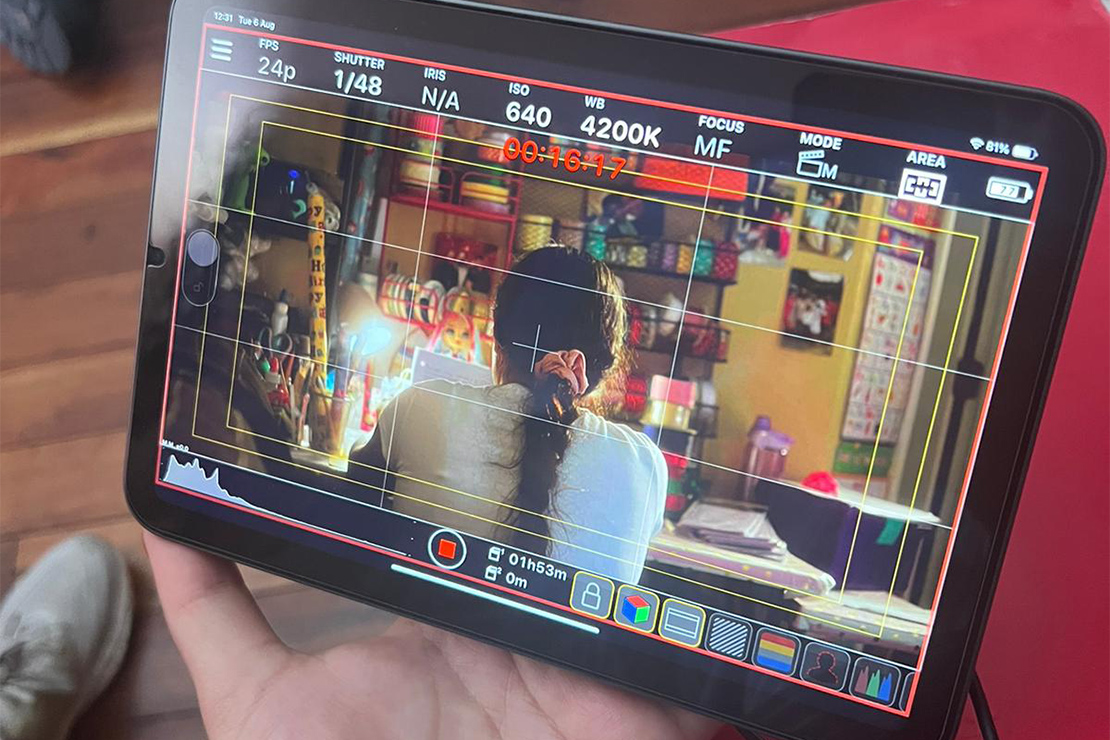
ACLU
Fearful for her family’s safety, Carlota made the difficult decision to leave their home and everything they knew behind in Mexico to take her two young children on a journey to seek asylum in the U.S. Today, they’ve been in the U.S. over two years and, while she awaits a final decision on her asylum application, she and her family have worked to build their lives and community here.

ACLU
After we finished filming for the morning, all the crew members sat down for lunch with Carlota and her daughter. Carlota and her family had prepared a delicious homemade feast. We had agua de jamaica, mole, fresh homemade tortillas, and frijoles. The familiar aromas and the meal took me back to being at my abuelita’s house eating her home cooked Mexican food. It felt like the comforts of home. As we ate lunch together, Carlota and her daughter were vibrant and laughing as they openly shared stories about their family and their lives here in the U.S.
Carlota told us she can finally feel “tranquility and peace that here we are creating a better future for our children.”
— Eva Lopez, Creative Campaign Strategist
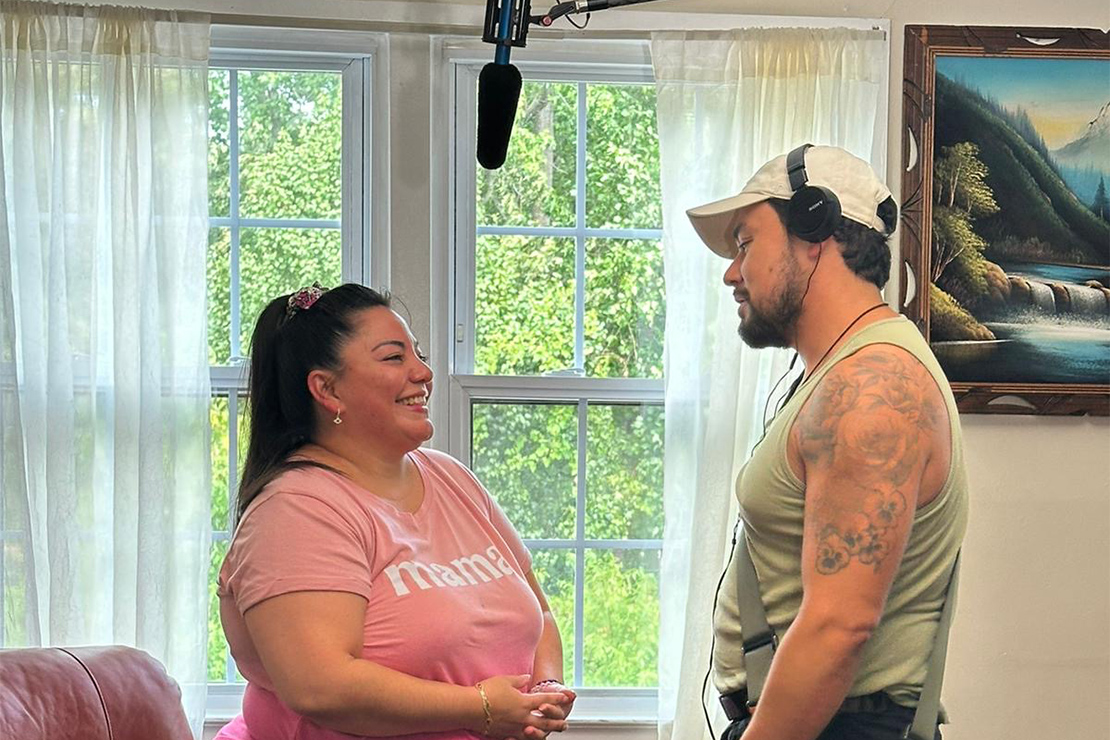
ACLU
When our crew arrived at Jessica’s home, we surveyed her living room to find a place to set up our cameras. As we scanned the walls looking for the right backdrop, we noticed a drawing hung up on the wall. “I made that during my time in detention,” Jessica told us.
We asked her if she’d kept other drawings from that time that she could show us. When we arrived at her home the next day, she handed us a stack of papers. We flipped through portraits of her children shaded in colored pencil, pieces of paper with handwritten notes and prayers from her Bible. When we asked Jessica if she had a favorite drawing, she showed us one of a rose that she’d sent to her eldest daughter to celebrate her high school graduation – one of many milestones she missed during her six years in immigration detention.

ACLU
As she held the paper in her hand, she lamented the fact that she was unable to give it to her daughter in person at the time, before turning the page to show us the note she’d written on the back: I made this little drawing for you. I love you sweetie. God bless you, your mother.
Jessica had signed her full name on the back of the drawing and, later, told me she did that so that her children knew the drawings were coming from her. “I wanted my kids to remember their mom as a fighter and someone who never gave up,” she told me.
– Gabby Arias, Communications Strategist, Immigration
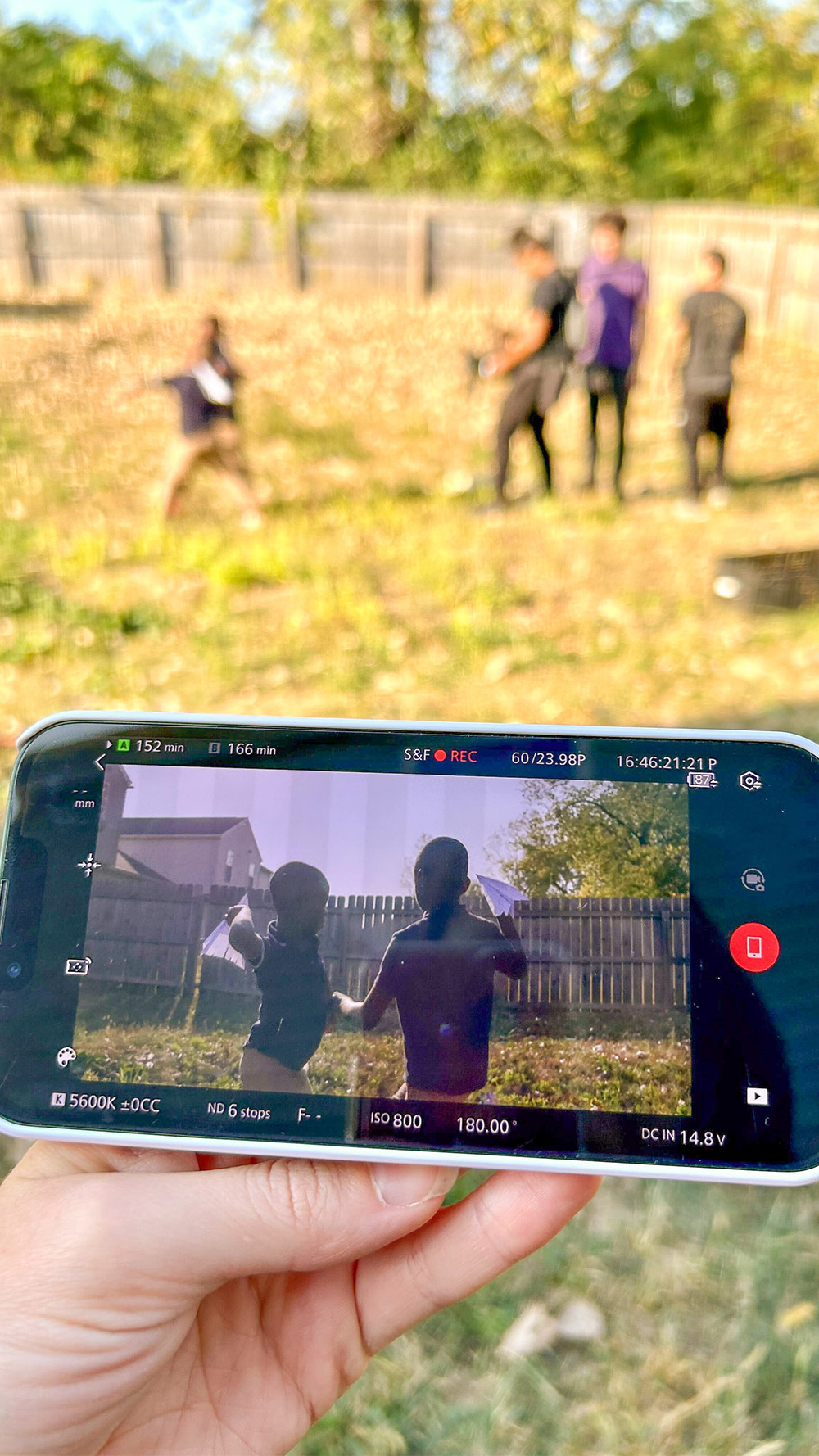
Kohar Minassian
“If you have a little time,” Joseph said quietly as soon as we entered his home, “I’d like to tell you about the history of Cameroon.”
As he explained his home country’s history of colonization with a professor’s exactitude, I glanced over to my right and realized that there was a baby in a pack n’ play right next to me. She was sleeping angelically, her tiny arms raised above her head, like she drifted off while silently doing the wave. Joseph’s fourth and youngest child, the only one of her siblings who was born in their family’s new home country, was totally unbothered by the strangers in her living room threatening to disrupt her afternoon nap.
Our crew was there to hear and document Joseph’s story seeking asylum in the U.S. while honoring his choice to remain anonymous. This visual challenge led to creative solutions, like the use of filters to abstract a scene, or framing shots to obscure Joseph’s face. The resulting images are a record of everyday moments in the American dream – the shocking red vibrancy of roses after a summer shower, paper planes and real jets soaring past each other carelessly above the suburban sprawl, a dinner table prayer of thanks illuminated by the evening sun.
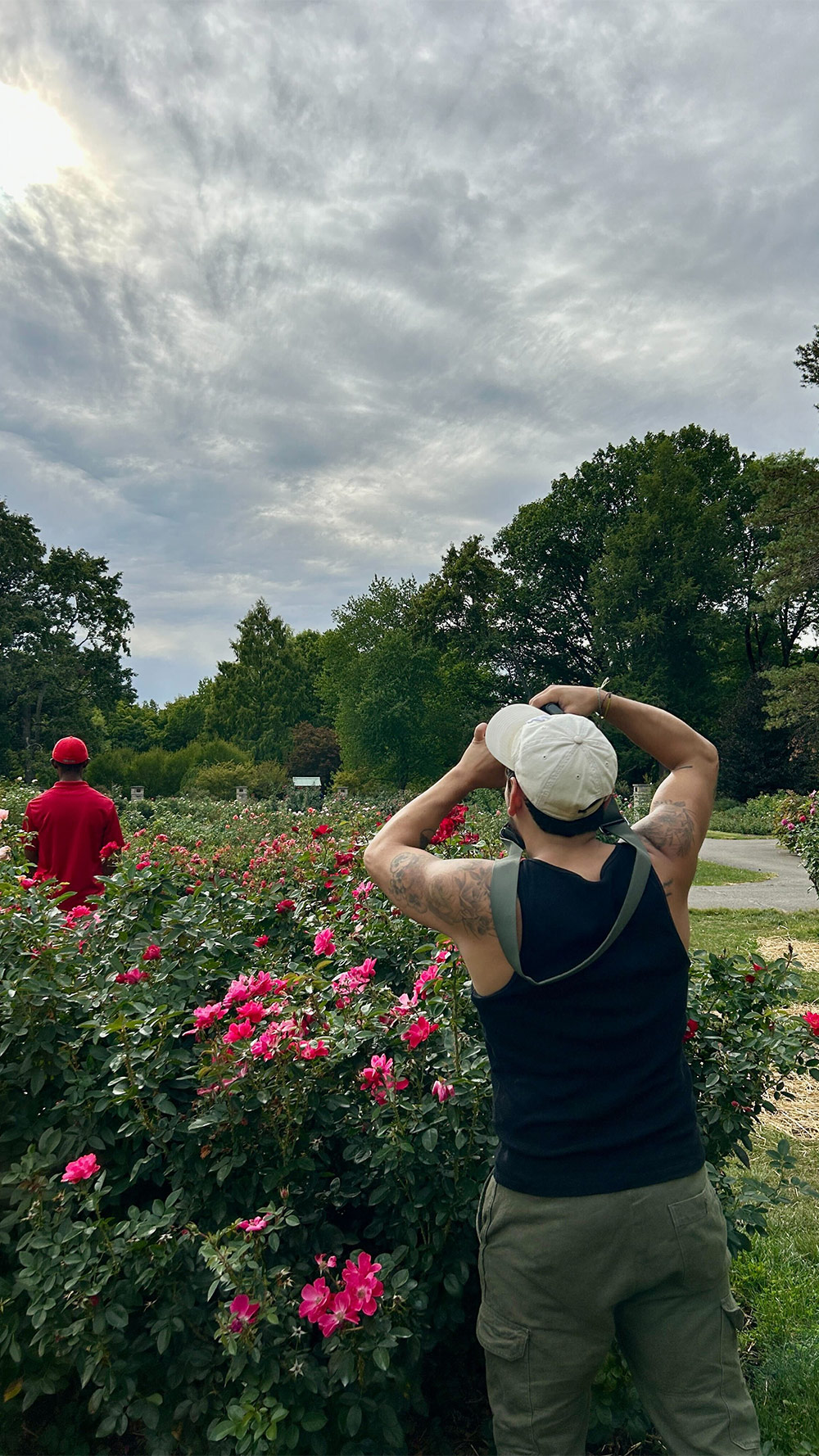
Kohar Minassian
Joseph shared how his family’s asylum journey had led them to Ohio, where during family meetings they discussed hard topics, like adjusting to their new school system, openly as a group. The smile in his eyes as he spoke was ceaseless, unbreakable, and calm. When his teenage daughter and two elementary school-aged sons arrived home, their house was filled with the noise of family life: the chopping of vegetables for dinner, someone watching a YouTube video in the other room, the scuffle of homework on the dining table.
“My dream is to reach out to the sky,” Joseph told me. “To ensure that my children receive the quality education that they deserve.”
— Kohar Minassian, Senior Multimedia Producer
Date
Monday, January 13, 2025 - 3:15pmFeatured image

